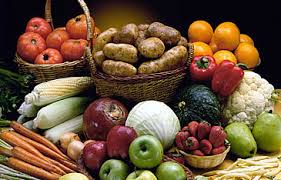 Carbohydrates, or carbs as they are commonly called, are a group of organic compounds that are found in foods and living tissue. This means they can be found in plants and animals as well as processed foods. They have a very important role in your body, including transporting energy through the body and are vital to cell interactions.
Carbohydrates, or carbs as they are commonly called, are a group of organic compounds that are found in foods and living tissue. This means they can be found in plants and animals as well as processed foods. They have a very important role in your body, including transporting energy through the body and are vital to cell interactions.
In the recent years carbohydrates have gotten a bad reputation. Unfortunately, carbohydrates are lumped into one large pile and are not differentiated. Proponents of eating low carb diets may also recommend carb intakes that are well below what your body needs to function optimally.
There are carbohydrates found in fruits and vegetables, as well as in processed foods and sugary desserts. While your body will process the carbohydrates in a similar way – making them into glucose and spiking your blood sugar – the processed foods add little to no other nutrients, while the carbohydrates in fruits and vegetables also carry vitamins and minerals that are essential to your health.
 The trick is to balance out the number of carbs you eat each day against your total calories and watch the quality of the carbohydrates you are eating. On a Paleo diet you’ll be eating carbohydrates from nuts, seeds, fruits and vegetables. The National Institutes of Health states that the average number of carbs eaten each day is between 220-320 grams per day for men and 180-230 grams per day for women. (1) According to the University of Maryland that calculation is lower than their recommended carbohydrate intake. (2)
The trick is to balance out the number of carbs you eat each day against your total calories and watch the quality of the carbohydrates you are eating. On a Paleo diet you’ll be eating carbohydrates from nuts, seeds, fruits and vegetables. The National Institutes of Health states that the average number of carbs eaten each day is between 220-320 grams per day for men and 180-230 grams per day for women. (1) According to the University of Maryland that calculation is lower than their recommended carbohydrate intake. (2)
Unfortunately, these numbers are high enough that it causes both a spike in your blood sugar and a crash a couple of hours later as the insulin in your body helps to metabolize the sugar and leaves you feeling tired and drained.
Your body uses the carbohydrates to make glucose, which is the fuel used by your cells for energy. So as your blood sugar (glucose) spikes and then crashes, so does your energy level.
There are two main types of carbohydrates – complex and simple carbohydrates. Complex carbs are found in foods with starches and fiber and take a bit longer to digest, keeping you feeling fuller longer. Simple carbohydrates are broken down quickly and found in sugars. These sugars are in fruits, milk products and food processing and refining.
References:
(1) National Insitutes of Health: Nutrient Recommendations
http://ods.od.nih.gov/Health_Information/Dietary_Reference_Intakes.aspx
(2) University of maryland Medical System: Carb Calculator
http://www.healthcalculators.org/calculators/carbohydrate.asp
Resources:
Centers for Disease Control and prevention: Carbohydrates
http://www.cdc.gov/nutrition/everyone/basics/carbs.html
Atkins: What are carbs
http://www.atkins.com/Science/Nutrition-and-Exercise/Good-Carbs.aspx
Medical News Today: What are Carbohydrates
http://www.medicalnewstoday.com/articles/161547.php
Insitute of Medicine: Dietary Reference Intakes
http://www.nal.usda.gov/fnic/DRI/DRI_Energy/energy_full_report.pdf
| Advertisement | |
 |
|


Leave a Reply